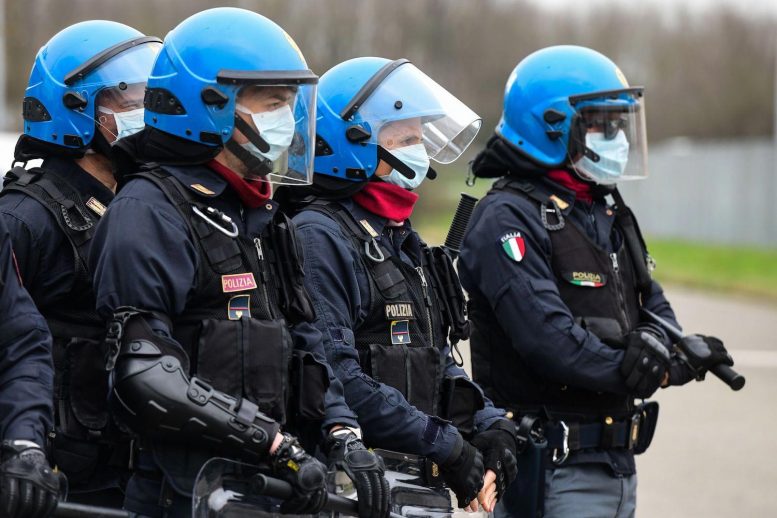
Serving police inspector and Huddersfield PhD researcher Dan Jones warns against police forces adopting an authoritarian or militarized approach.
How the police use extra powers they have received during COVID-19 will have a long-lasting effect on their relationship with the public, argues a university researcher who is also a senior police officer.

In a recent article, Dan Jones – an Inspector with the Edmonton Police Service in Canada who is completing a PhD at the University of Huddersfield in the UK – warns against police forces adopting an authoritarian or militarized approach. That could mean they lose their legitimacy, especially with poor communities that have been hit hardest by the COVID-19 pandemic.
On the other hand, argues Mr. Jones, “if the police respond with compassion and care when they are required to enforce public health laws due to the pandemic response of their respective nations, this could build police legitimacy in a time of crisis.”
Now more than ever, the article concludes, “police leaders need to ensure that procedurally just practices are occurring between police and public.”
Drawing on data from around the world, the article states that “the over-policing of marginalized neighborhoods and communities is particularly worrisome during the pandemic, when the police have to enforce new public health laws and ensure public safety while depending on the public’s willingness to comply with social distancing or lockdowns in a way that they never had to before.
“At the same time, police are tasked more than ever to prevent civil unrest. Communities that already have strained relationships with the police might have a harder time complying with the new rules and regulations. As police legitimacy is often lower in disadvantaged communities, there is the potential that the population does not see the laws as necessary. As such, it becomes even more important for the police to be (and be perceived as) legitimate and procedurally just to gain compliance from community members.”
Impacts of Pandemic Policing on Police Legitimacy
During his 23-year career with the Edmonton Police Service, Dan Jones has filled a wide variety of roles – from patrolling the inner city to investigating homicides and working undercover probing right-wing extremism. He currently heads his department’s research and community solutions accelerator and is also immersed in academic research.
After completing a Master’s degree in applied criminology at Cambridge University in the UK, he embarked on his doctoral project at Huddersfield, where he is supervised by the criminologist Professor Rachel Armitage.
For his PhD, he has been researching incarcerated women in the Canadian prison system, gauging their rates of reoffending and how they are often victims of crime themselves.
“The policing world and the justice world don’t really understand who their clients are,” states Mr. Jones. “There are many interventions that are potential alternatives to jail and the authorities should try to address the root causes that lead to incarceration,” he argues.
During his PhD, Mr. Jones has paid regular visits to the University of Huddersfield, although coronavirus has meant that his successful progression viva had to take place via Skype. He aims to complete his thesis during 2021 and after a lengthy career first in the prison service and then in the police, he hopes to make a full transition to academic work.
Reference: “The Potential Impacts of Pandemic Policing on Police Legitimacy: Planning Past the COVID-19 Crisis” by Daniel J Jones, 5 June 2020, Policing: A Journal of Policy and Practice.
DOI: 10.1093/police/paaa026
Never miss a breakthrough: Join the SciTechDaily newsletter.